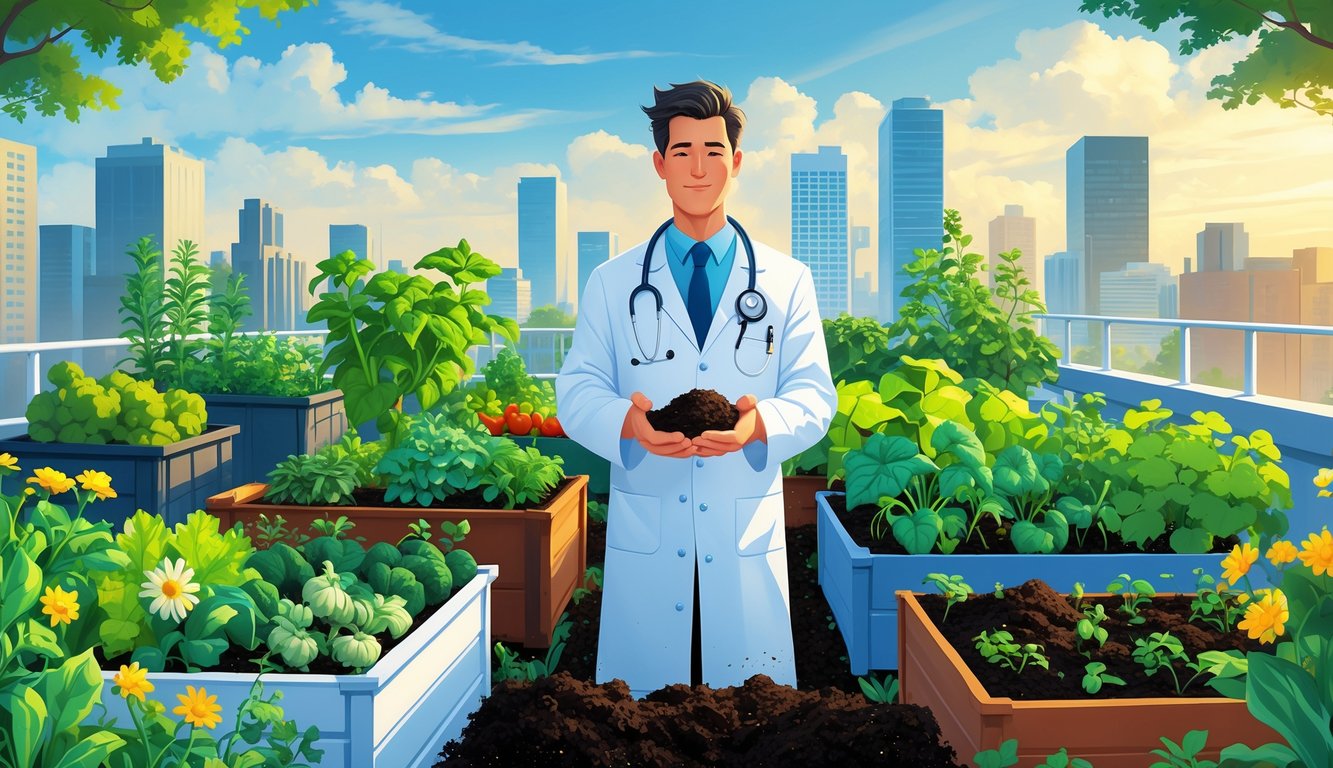
Exploring Related Products: Ointments and Further Innovations
Dirt under my nails, hands raw, and suddenly YouTube’s pushing calendula ointment ads—like I’m supposed to believe it’ll fix everything? Meanwhile, my plant tabs are mixed in with allergy meds. There’s this weird overlap: soil mixes, balms, and whatever the latest “doctor-approved” thing is. Is anyone actually checking who regulates this stuff?
Ointments with Plant-Derived Ingredients
Saw this jar last week—arnica, chamomile, something ancient-sounding—mashed into a greasy base that left smudges everywhere. The shop claimed “pharmaceutical-grade oils,” which, sure, why not. I called a dermatologist (awkward, dirt still on my hands) and she basically said these plant ointments are a toss-up between old wives’ tales and actual medicine. Calendula? Yeah, [there’s some evidence](J Am Acad Dermatol, 2023) it helps with mild irritation. Mild. That’s it.
Let’s be real, nobody checks for FDA approval before slapping on balm after hacking at roses. Biggest thing I’ve learned? Some “natural” ointments hide ingredients that trigger allergies, and labeling is a joke. Apparently, topical formulas are getting fancier, but most garden center balms are just beeswax and lavender in a new tin. Feels like a loophole you could drive a wheelbarrow through.
Future Trends in Garden Wellness Products
Now everyone wants a “garden wellness routine.” I got spammed about some “mycorrhizal probiotic ointment” (seriously), and I have questions. Too many. Urban gardeners get obsessed with microbe synergy, and now neem oil creams show up in fancy packaging, pretending to be pharmaceuticals. Tried to find one with clinical trials on the label—nope.
Suddenly, “advanced therapeutic garden balms” are everywhere, stealing buzzwords from the pharma world. But do dermatologists care? Not really—they keep warning that almost none of these pass actual medicine tests. A chemist at a trade show once said, “Allergies don’t care if it’s organic.” My neighbor swears by homemade comfrey ointment, but has she ever checked for hidden irritants? I haven’t. Oops.
Frequently Asked Questions
People keep asking for the one magic soil for every garden, but honestly, both the data and my tired back say that’s a fantasy. Watching compost slump next to bagged blends while seedlings look sad, you just start grabbing whatever’s nearby and doubting everything you read. Then a Master Gardener shrugs and says, “Just do a soil test.” Not that I’m a rebel, I just don’t buy the “premium” label hype.
What’s the ideal soil mix recipe for a flourishing raised bed vegetable garden?
There’s always some cousin’s secret recipe. Best mix I ever tried? One-third compost, one-third peat moss (or coconut coir, if you want to avoid the guilt), one-third vermiculite or perlite. Not a food group, but it keeps things light. I checked this against what the Extension office says—they’re all about organic matter and structure. Cats don’t care, but tomatoes do. Go figure.
People love worm castings, but do my worms even eat enough greens? Never checked.
Looking for trusted bulk garden soil options for raised beds – any recommendations?
Buying bulk is a gamble—the pile might look fine, until you find mulch chunks or the pH is off the charts. After calling around Dallas, I landed on locally certified mixes because at least you can ask, “What’s in this?” Sometimes they’ll admit to tossing in hardwood mulch. I tried an online “super soil” once—ended up with slugs and weird fungus.
Always ask for a sample. It’s awkward, but don’t trust pretty photos.
How can I find the quality bagged soil for my urban vegetable garden?
Split bags, weird smells—been there. I look for “organic,” “OMRI listed,” or “ready-to-plant,” but even then, ingredient lists are a mess. I check ratings and pester garden centers for batch info. For indoor pots, bag weight matters; for outside, I just want all-natural urban mixes.
Plants can’t read, but they know when “moisture control” means “swamp.”
Could you guide me through the garden soil mix ratio for optimal plant health?
Ratios haunt me. Once quadrupled the peat moss by accident. Most guides say a third compost, a third peat or coir, a third perlite or vermiculite, maybe a dash of lime if tomatoes pout. Some nurseries sell “balanced” mixes, but I trust my own blends and a soil test more.
Once, my dog ate vermiculite. Nothing happened, but the vet was baffled.
What are the steps to obtaining and interpreting a soil test for my garden?
Soil sampling isn’t rocket science, unless you like pretending you’re on an archaeological dig. Scoop a few samples from different spots, mix them, mail them (labs want bags, not jars—don’t ask). A few weeks later, you get an email with a graph full of numbers you’ll never remember, but extension guides help.
First test I did? “Extreme potassium.” No idea how. Never grew a banana.
How soon can I expect to see results after amending my garden soil?
Honestly, I have no idea. I mean, I dump stuff into the dirt and half-expect a miracle, but nope—plants just stare back at me like, “Nice try.” Supposedly, soil amendments get sucked in or break down in two to four weeks? That’s what some expert told me, but I’m not buying it. I spent a whole summer glaring at a sad little patch, and it did absolutely nothing (info here on reabsorption timing). Fertilizer? Sometimes it’s magic, sometimes it’s a complete flop. No rhyme or reason.
And then, just to rub it in, the neighbor’s sunflowers explode into bloom overnight. I don’t get it.